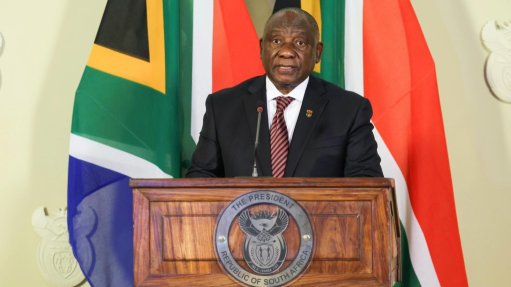Political comebacks in Africa
When Donald Trump was elected for a second term as US President, he became only the second former President in the nation’s history to stage a comeback after an electoral defeat. The first was Grover Cleveland, who, after losing in 1888, returned for an encore performance with a second, non-consecutive term from 1892 to 1896.
Africa recently had its own comeback President in Ghana’s John Mahama, who, after serving his first term from 2013 to 2017, was re-elected for a second four-year term, which started in January and wraps up at the end of 2028.
His return seems to have been well received by many commentators. They point to his new Cabinet – a blend of stalwarts from his 2013-to-2017 administration and highly qualified technocrats – as boding well for the country.
Among those waxing lyrical about his new team is consultancy Oxford Economics Africa political analyst Jervin Naidoo, who told an interviewer: “I appreciate the technocratic approach of several Ministers, such as those overseeing Energy, Forestry Affairs, Justice and Finance.”
In Naidoo’s reckoning, the presence of technocrats in these key Ministries indicates Mahama’s preference for expertise over political considerations. This preference is also reflected in appointments he has made across State-owned enterprises, where a sizable number of CEOs are highly qualified individuals.
But the 66-year-old’s legacy will depend on whether the expertise of technocratic Ministers translates into tangible policy successes, especially as Ghana faces significant economic headwinds, including an unstable domestic currency.
Closer to home, Edgar Lungu could have a second bite of the cherry in Zambia – if he succeeds in overturning a court judgment declaring him ineligible to contest in elections due in 2026.
Lungu was first elected in January 2015 to serve the remaining 20 months of the term of his predecessor, Michael Sata, who had died in office in October 2014. Lungu, who went on to win the 2016 elections but lost to Hakainde Hichilema in 2021, had argued that this should not count, as he did not serve a full five-year term. He has vowed to fight the court’s decision.
I’m sure many Zambians would prefer an extension of Hichilema’s stay at the helm to a Lungu rebound. Although Zambia’s economy is still rebounding from a Covid-induced recession and was hit by a severe drought in 2024, growth prospects under Hichilema are optimistic. The country’s central bank forecasts GDP to expand by 6.6% this year, followed by 5.9% in 2026 and 5.6% in 2027.
This optimistic outlook assumes increased mining production, effective implementation of reforms, restoration of debt sustainability and normalisation of rainfall patterns.
By the end of June last year, Zambia had received mining investment pledges exceeding $7-billion for new and expansion projects, which are expected to boost inflows and services related to mining, supporting future exports and foreign exchange earnings. Investors would not be pouring these serious sums into Zambia if Hichilema – HH to his supporters – was not doing a good job as the CEO of Zambia Inc.
There is also potential for a Presidential bounce-back in Malawi, which goes to the polls in September. Peter Mutharika, President from 2014 to 2020, when the Supreme Court voided his re-election in May 2019, citing serious irregularities, has served notice he will throw his hat in the ring again later this year.
When he came to power in 2020, the incumbent, Lazarus Chakwera, promised to create a thriving economy and to tackle youth unemployment – precisely what Malawians desperate for jobs wanted to hear. But, as noted in this column previously, instead of creating employment opportunities at home, his government has resorted to sending its unskilled young citizens to work on farms in Israel. The Malawians, expected to eventually total 3 000, are replacing Palestinians and other foreigners who no longer work in Israel because of tensions sparked by the Israel-Hamas conflict.
According to a recent Afrobarometer survey, if elections were held today, Chakwera’s ruling Malawi Congress Party would get only 29% of the vote and Mutharika’s Democratic Progressive Party 43%.
Should there be a comeback in Malawi or Zambia, it must be à la Mahama in Ghana.
Article Enquiry
Email Article
Save Article
Feedback
To advertise email advertising@creamermedia.co.za or click here
Announcements
What's On
Subscribe to improve your user experience...
Option 1 (equivalent of R125 a month):
Receive a weekly copy of Creamer Media's Engineering News & Mining Weekly magazine
(print copy for those in South Africa and e-magazine for those outside of South Africa)
Receive daily email newsletters
Access to full search results
Access archive of magazine back copies
Access to Projects in Progress
Access to ONE Research Report of your choice in PDF format
Option 2 (equivalent of R375 a month):
All benefits from Option 1
PLUS
Access to Creamer Media's Research Channel Africa for ALL Research Reports, in PDF format, on various industrial and mining sectors
including Electricity; Water; Energy Transition; Hydrogen; Roads, Rail and Ports; Coal; Gold; Platinum; Battery Metals; etc.
Already a subscriber?
Forgotten your password?
Receive weekly copy of Creamer Media's Engineering News & Mining Weekly magazine (print copy for those in South Africa and e-magazine for those outside of South Africa)
➕
Recieve daily email newsletters
➕
Access to full search results
➕
Access archive of magazine back copies
➕
Access to Projects in Progress
➕
Access to ONE Research Report of your choice in PDF format
RESEARCH CHANNEL AFRICA
R4500 (equivalent of R375 a month)
SUBSCRIBEAll benefits from Option 1
➕
Access to Creamer Media's Research Channel Africa for ALL Research Reports on various industrial and mining sectors, in PDF format, including on:
Electricity
➕
Water
➕
Energy Transition
➕
Hydrogen
➕
Roads, Rail and Ports
➕
Coal
➕
Gold
➕
Platinum
➕
Battery Metals
➕
etc.
Receive all benefits from Option 1 or Option 2 delivered to numerous people at your company
➕
Multiple User names and Passwords for simultaneous log-ins
➕
Intranet integration access to all in your organisation

















